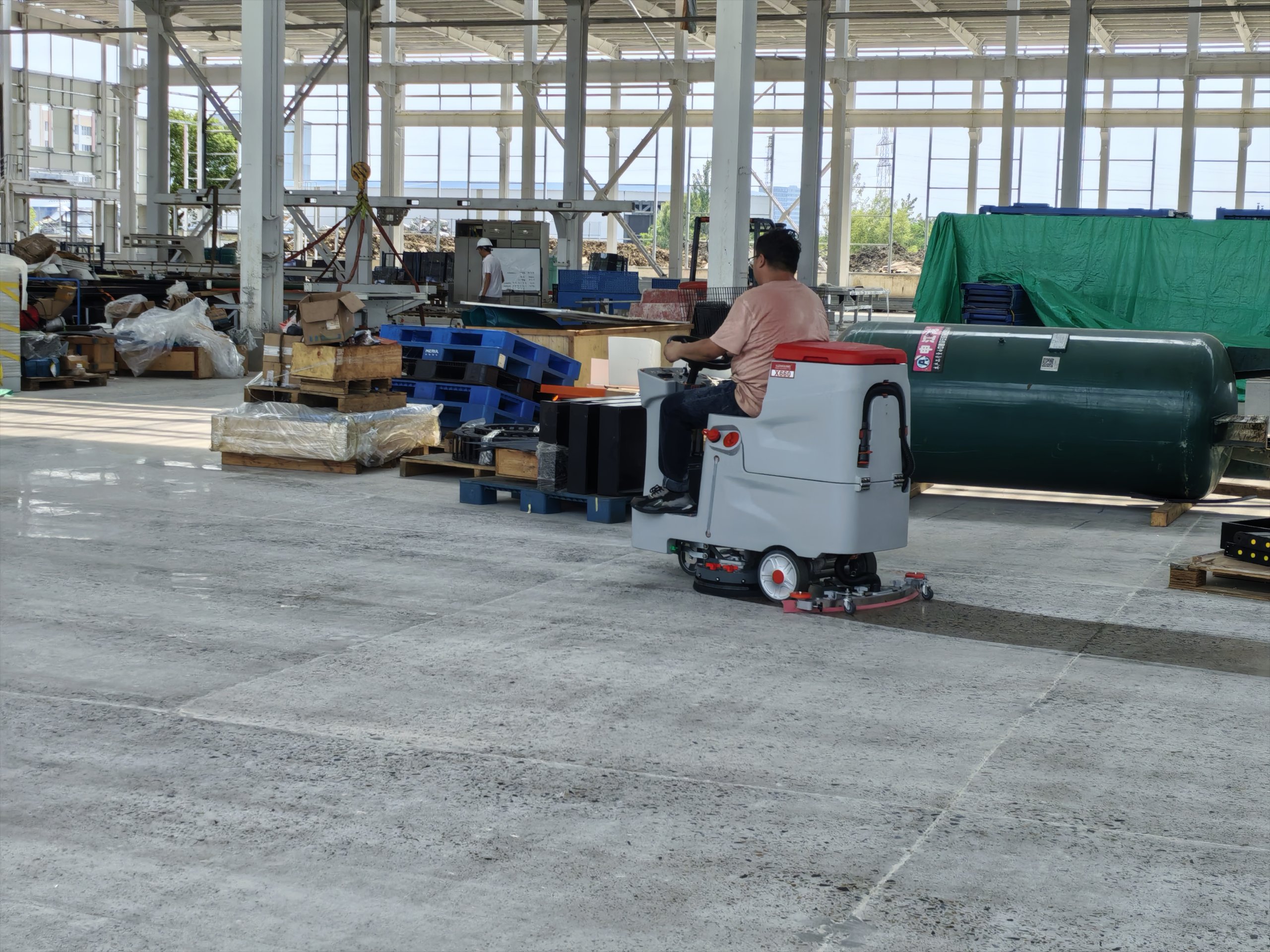Cleaning a concrete floor with a scrubber machine requires the right technique, chemicals, and machine settings to ensure effective cleaning without damaging the surface. Below is a step-by-step guide:

1. Pre-Cleaning Preparation
-
Sweep or Vacuum: Remove loose dirt, dust, and debris to prevent scratching.
-
Inspect the Floor: Check for cracks, oil stains, or heavy grime that may need pre-treatment.
-
Choose the Right Scrubbing Pad/Brush:
-
Light Cleaning: Use a soft bristle brush oder red pad.
-
Heavy Stains/Oil: Use a stiff bristle brush oder black/green pad.
-
-
Dilute Cleaning Solution:
-
For general cleaning: Neutral pH cleaner (safe for concrete).
-
For grease/oil stains: Alkaline degreaser.
-
Avoid acidic cleaners (they can etch concrete).
-
2. Machine Setup
-
Fill Tanks:
-
Fresh Water Tank: Add cleaning solution (follow manufacturer’s dilution ratio).
-
Recovery Tank: Empty before starting.
-
-
Adjust Machine Settings:
-
Brush/Pad Pressure: Medium for regular cleaning, high for stubborn stains.
-
Water Flow: Adjust to avoid over-wetting (concrete absorbs water).
-
Squeegee Position: Ensure proper suction for drying.
-
3. Scrubbing Process
-
Start in a Corner: Work in straight, overlapping passes.
-
Optimal Speed: Move at 2-3 mph (too fast = poor cleaning, too slow = over-wetting).
-
For Stubborn Stains:
-
Pre-treat with degreaser.
-
Make multiple passes or reduce speed.
-
-
Avoid Standing Water: Concrete is porous; excessive water can cause damage.
4. Post-Cleaning Steps
-
Recover Dirty Water: Ensure the vacuum/squeegee picks up all dirty water.
-
Rinse (if needed): Use clean water to remove detergent residue.
-
Allow to Dry: Use fans or open doors for faster drying.
5. Maintenance Tips
-
After Each Use:
-
Rinse tanks to prevent chemical buildup.
-
Clean brushes/pads to avoid contamination.
-
-
Concrete Floor Care:
-
Apply a sealer after deep cleaning to protect the surface.
-
Avoid excessive water to prevent efflorescence (white salt deposits).
-
 Tanjie Reinigen
Tanjie Reinigen


